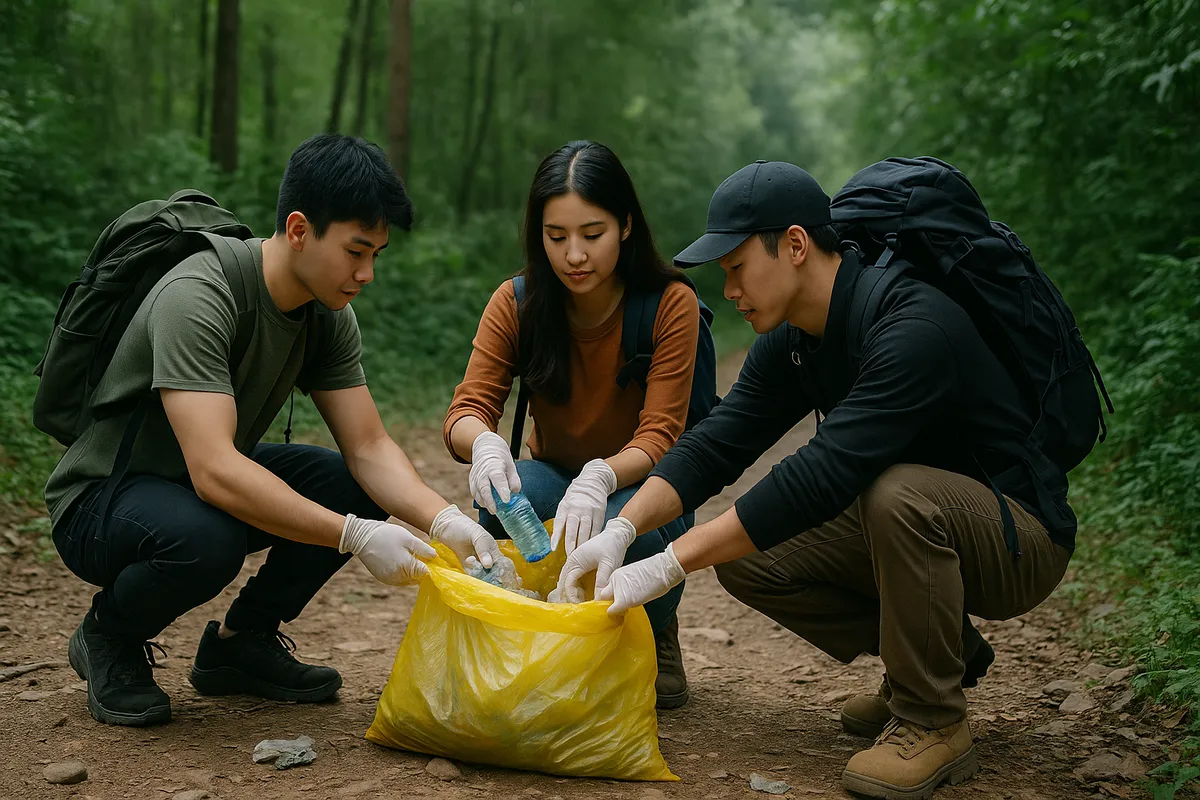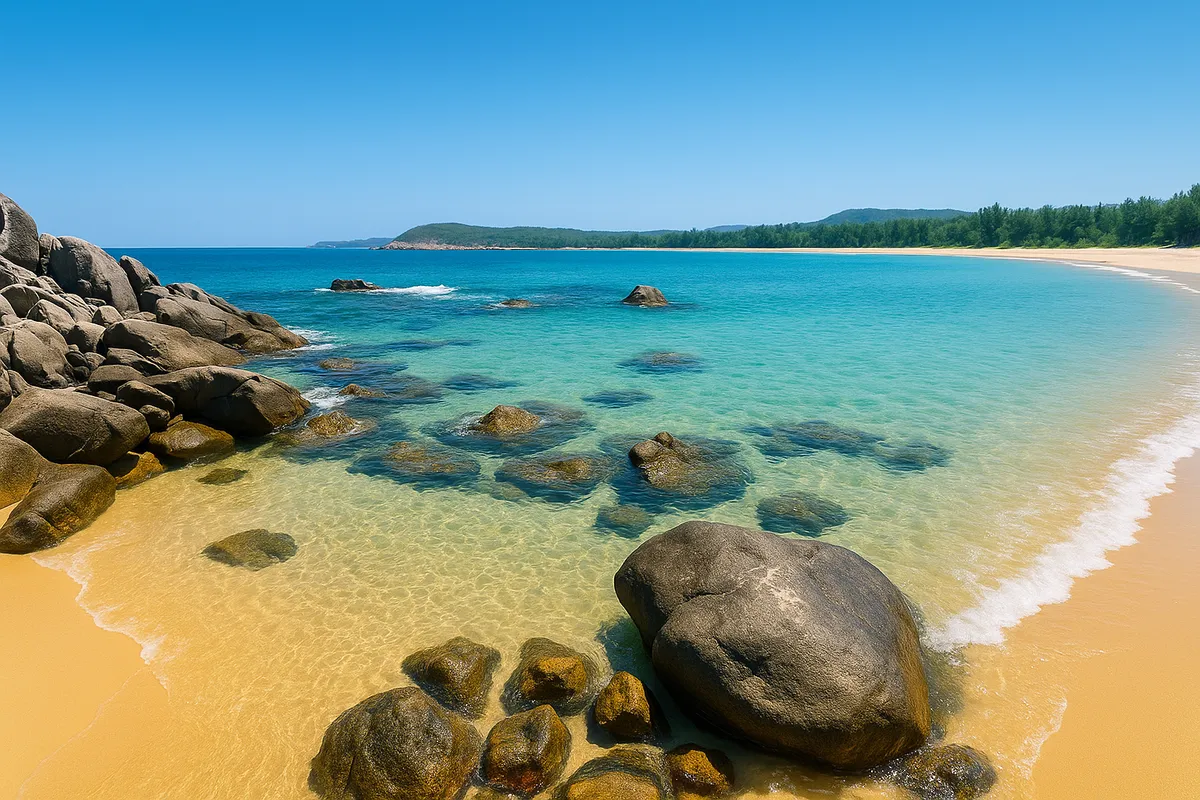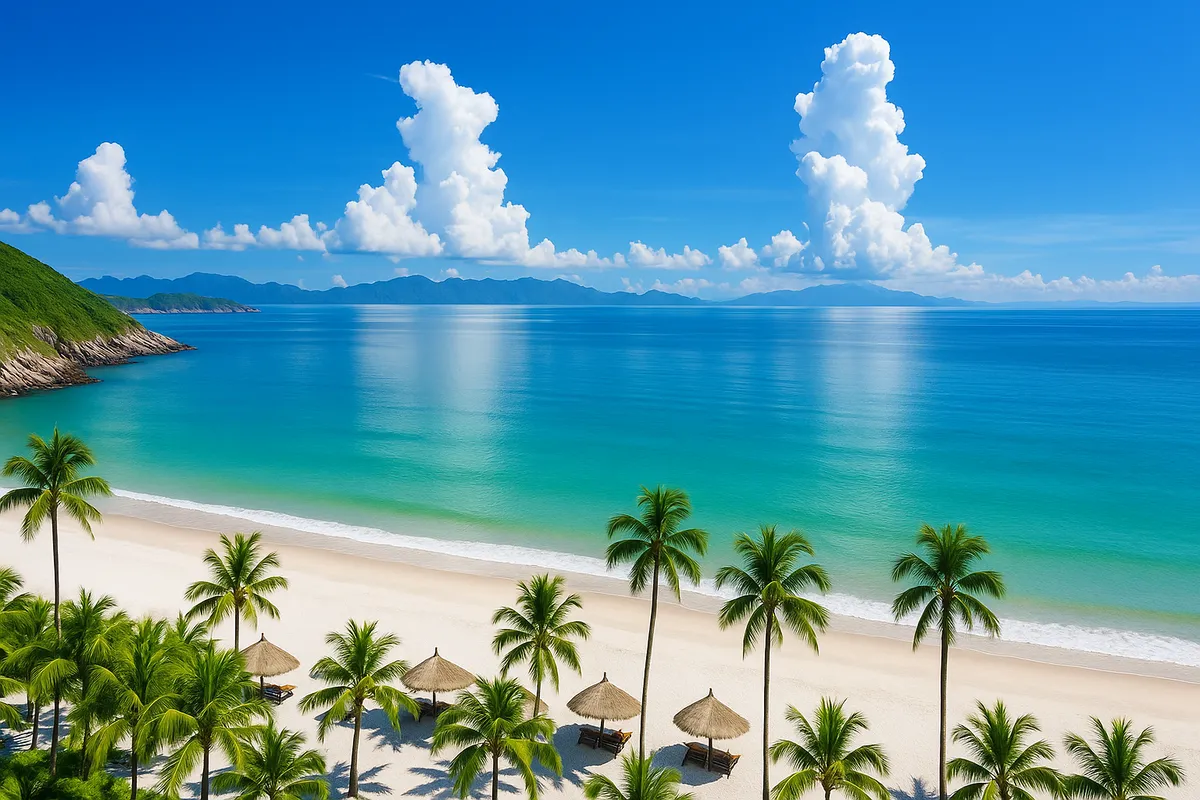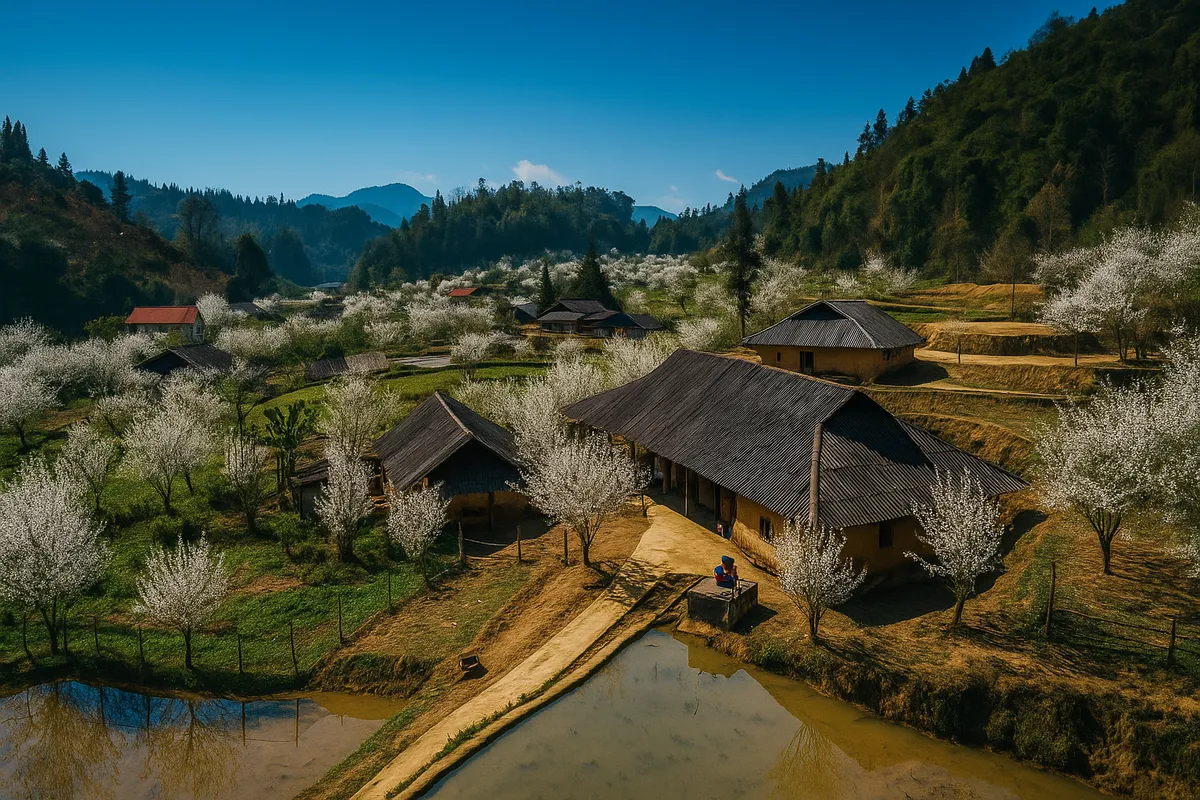Environmental protection is not just a slogan on the road
- Saturday, May 24, 2025, 21:21 (GMT+7)
Environmental protection is not just a slogan on the road
Long-distance motorbike trips are not only about exploring breathtaking routes. They are also an opportunity to slow down and reflect on the bond between humans and nature. Yet there is an undeniable paradox. The more people take to the roads, the more footprints cover once pristine paths. Some destinations once considered untouched paradises are now littered with waste. Streams have dried up due to clusters of tents, and forests have lost wildlife to careless campfires. Protecting the environment during such journeys is no longer a choice. It is a responsibility.
It does not require grand gestures or large-scale efforts. Small changes in everyday habits can help each traveler preserve the raw beauty of every place they set foot in. This is not empty theory, but hard-earned wisdom drawn from countless journeys, from observing how young travelers behave, and from the quiet exchanges within travel communities.
One of the most common mistakes is relying on single-use plastic bags or disposable containers to carry food and drinks. The excuse is often "because it is light and convenient." But what is light for us becomes a heavy burden for nature. A plastic bottle left in the middle of a forest dozens of kilometers from the nearest town will stay there. No one is coming to clean it up. A simple switch to a personal water bottle makes a huge difference. Using a thermal bottle can also help save costs and reduce waste. Many travelers have said that carrying a reusable bottle alone cut down nearly 80 percent of their plastic trash on each trip.
Another seemingly harmless habit is building campfires using dry wood found along the way. In truth, this can cause serious damage to ecosystems. Stripping the surface of vegetation to light a fire leaves the soil bare, leads to erosion, and destroys the forest’s fertile layer. During dry seasons, even a single ember can cause widespread wildfires. If you want a cozy evening, choose an alcohol stove or a small gas burner. They are safer, more compact, and more sustainable.
There are also small actions that often go unnoticed, like washing dishes with soap in streams. Even tiny amounts of soap can pollute the entire water source downstream. A better alternative is using kitchen ash or biodegradable cleaning products designed for outdoor use. These products are now widely available, affordable, and make every traveler more environmentally responsible.
Some bring packaged food and toss the wrappers along the trail, saying they do not want to carry trash. But that inconvenience can never justify leaving waste behind in nature. A simple solution is to carry a separate dry waste bag made of cloth, with a zipper or seal to contain smells. It can be clipped to the outside of a backpack to stay airy. Many who have tried this method say looking back at the bag of collected trash gives a surprising sense of satisfaction, no less than reaching a mountaintop.
The habit of taking “perfect” photos everywhere can also cause unintended harm. Fields get trampled, tree roots are crushed just because someone wanted a shot better than the last. Experienced hikers have a rule “shoot without stepping” which means not walking on fragile terrain or risky spots just for a unique photo. This awareness not only protects the landscape, but also keeps photographers safer.
Then there is the act of carving names on rocks, trees, or walls at tourist sites. This might seem harmless, but in reality, it degrades natural landmarks. In some places, locals have resorted to covering up the offensive graffiti with paint. To respect a space enough to leave no trace is the real mark of a mindful traveler.
One often overlooked but impactful practice is picking up trash left by others. If you see garbage in hard-to-reach areas by cliffs, near waterfalls, pick it up and bring it to the nearest waste station. It is not about being a hero. It is about ensuring the next traveler does not have to see those scars. This small act inspires and creates a ripple effect of care in the community.
When passing near villages or local communities, take a moment to observe how the locals live in harmony with nature. Veteran travelers often learn clean habits from highland residents, such as using banana leaves instead of styrofoam, washing vegetables in streams without soap, or making full use of food to avoid waste. A journey gains deeper meaning when locals are seen as teachers, not just service providers.
And never forget to share your experience of environmental care after each trip. A short article, a quick story, even a single post online is enough to spread eco-consciousness. Future travelers will learn more from real actions than from any slogan.
Traveling on two wheels is not just about conquering heights or chasing wind-blown roads. It is a path toward something lasting, where every step leaves something good for the next to come. There is no need for loud declarations. Quiet changes in small details are enough to turn each trip into a meaningful contribution to a cleaner, more beautiful, and more humane world of travel.

 CHECKIN.VN
CHECKIN.VN








Share on